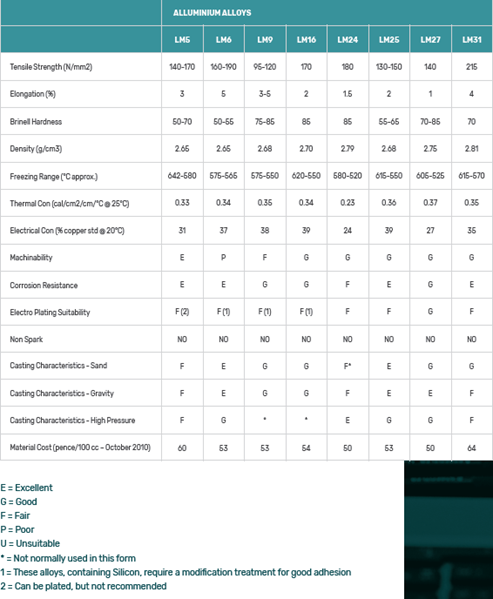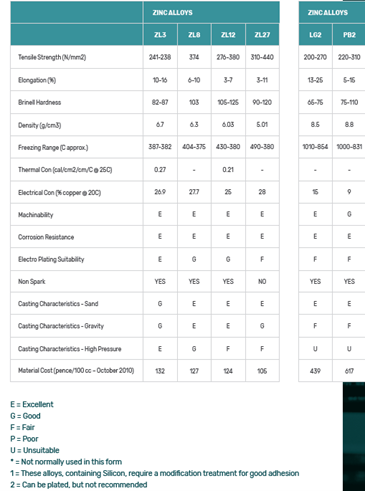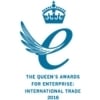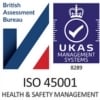So, you’ve chosen a casting method and you’re ready to take the next step.
Choosing the perfect alloy to suit your casting process – as well as the final application of that casting – is the decision that’s now on the table.
You’ll have a wide range of alloys to choose from (both copper and zinc) and evaluating the characteristics of these materials will be critical to making your finished product a success.
There’s a lot to consider, so here’s our advice on how to get it right.
Why do we use aluminium alloys for casting?
We can modify or enhance the most important physical properties of pure metals – such as density, melting point, and electrical conductivity – by alloying it with another metal or non-metal, depending on the requirement.
This results in a wide range of alloys with distinct characteristics, ready to solve particular challenges in design and manufacture.
When armed with the knowledge of these specific features, you can ensure that your chosen alloy will attribute itself perfectly to your needs. This includes a predictable output which will prevent the need for numerous tests – saving time and money in the long-run.
What are the casting benefits of aluminium alloys?
If you need a corrosion-resistant alloy that can withstand high temperatures, an aluminium alloy could be your best choice.
Lightweight, strong and hard, aluminium alloys also produce near net-shaped parts, reducing the amount of material required, as well as any waste.
To examine the finer characteristics of aluminium alloys, just take a look at this table.

What about the casting benefits of zinc alloys?
Zinc has a lower melting point than aluminium alloy, as well as requiring lower pressure for casting. This reduces the experience of thermal shock, allowing for reduced machining, trimming, and finishing work.
If your casting has thin walls and requires intricate detailing, it could be the perfect alloy for you.
To delve into the specific advantages of individual zinc alloys, we’ve created this table to help.

How do you establish if an aluminium alloy is suitable for heat treatment?
Once your alloy is cast, you may need to heat treat it, in order to alter its physical or chemical properties.
Controlled heating and cooling can have predictable effects on alloys – such as changing its hardness or strength. It’s important to understand the full impact of these changes, as one desirable effect of heat treatment could spark a second that isn’t quite what you wanted.
Most aluminium castings don’t need to be altered, but there’s a possibility that your requirements could result in heat treatment being necessary – such as needing higher mechanical properties than the original casting will allow.
Sand and gravity die castings will allow for heat treatment, but it’s generally not achievable with a pressure die casting – so you will need to consider your original choice of process.
What do the different aluminium alloy heat treatment suffixes mean?
To indicate the heat treatment condition of BS1490 aluminium alloys (the specification for aluminium castings for general engineering purposes), the following suffixes are used in the UK:
- M - As cast
- TS - Thermally stress relieved, annealed
- TB - Solution heat treated and naturally aged to a substantially stable condition
- TB7 - Solution heat treated and stabilised
- TE - Artificially aged
- TF - Solution heat treated and artificially aged
- TF7 - Solution heat treated, artificially aged and stabilised.
The following alloys are not fully heat treated:
LM0, LM2, LM5, LM6, LM20 and LM24.
The following alloys may be heat treated, but their properties are not standardised in the heat-treated condition shown:
LM12, LM21, LM27-TF and LM30-TF.
The following alloys are standardised in the heat-treated conditions indicated:
LM4-TF, LM9-TE, LM9-TF, LM13-TE, LM 13-TF, LM13- TF7, LM16- TB, LM16-TF, LM22-TB, LM25-TE, LM25-TB7, LM25-TF, LM26-TE, LM28-TE, LM28-TF, LM29-TE, LM29-TF and LM30-TS.
Can you heat treat zinc alloys?
Zinc alloys aren’t generally heat-treated, with the exception of annealing ZA27, which can improve ductility if stress builds up within the casting during solidification.
Need more detail?
Our ‘Notes for Designers’ guide goes into even more depth when choosing a casting alloy. Why not sign up to receive your copy today?
Furthermore, our friendly and knowledgeable team are more than happy to answer any questions you may have. Contact us now.









